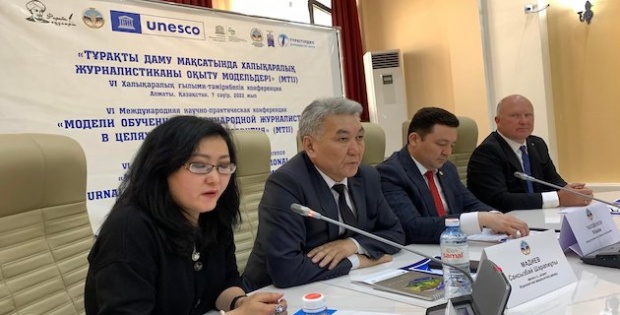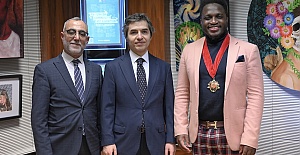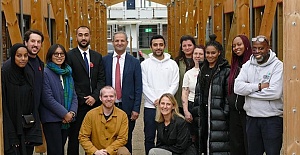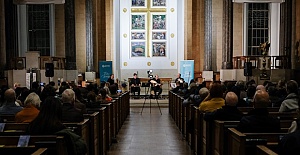AVRUPA TIMES/LONDON-AVRUPA AJANSI (AVA)- This year, for the sixth time, the UNESCO Chair of Journalism and Communication at Al-Farabi Kazakh National University organized a scientific and practical conference on «Models of Teaching International Journalism for Sustainable Development». The scientific conference on trends in the development of international journalism is supported by the UNESCO Almaty Cluster Office. This year's conference brought together scholars and media representatives from the United States, United Kingdom, Netherlands, Poland, Turkey, Mexico, Russia, Kyrgyzstan, Uzbekistan, and Azerbaijan to discuss topical issues such as journalist safety, climate change, media literacy, publishing conflicts in media, the technology of hybrid education, migration in Central Asia, building a peaceful, democratic society and others. The UNESCO Chair united world scientists, media educators, and international journalists on a single platform for a comprehensive discussion of trends in modern journalism.
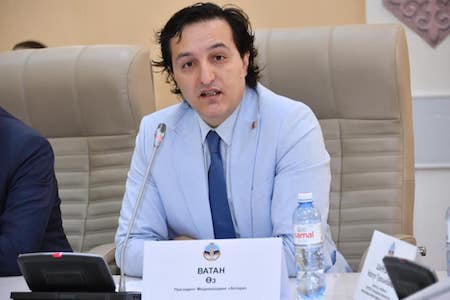
Vatan Oz, president of the British media holding company «Avrupa»
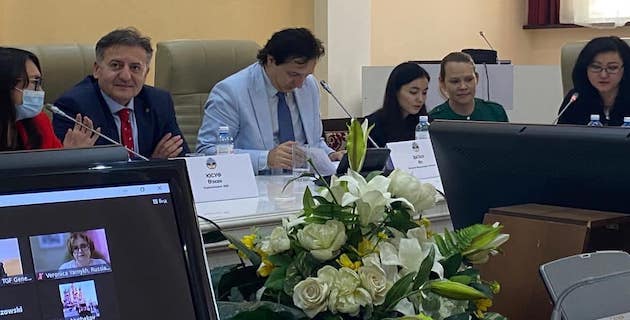
In today's digital environment, safety is a topical issue for everyone. In this regard, to find solutions to the issues of artificial intelligence, data processing, the importance and role of journalism in human life, raised at the meeting reaffirmed that journalists, international organizations, NGOs, higher education teachers, and the world schools of journalism should work together.
Khaidar Tasibekov, provost of Al-Farabi Kazakh National University, opened the international conference and spoke about the role of modern universities, which are actively involved in public life. He noted that in today's globalized educational paradigm, the role of "third-generation" universities, capable of implementing a model for the sustainable development of the world, is increasing.
Sergey Karpov, the Regional Specialist of the UNESCO Cluster Office, stressed the importance of the meeting organized on World Press Freedom Day, emphasizing the right of citizens to reliable information and the support of the academic community in complying with international standards of journalism. The national expert spoke about the massive open online courses on the most important journalism topics developed by UNESCO. In this regard, it should be noted that the UNESCO Department is preparing open online courses for Central Asian universities as part of an international project.
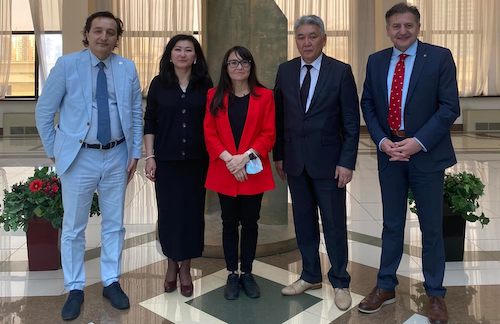
Naziya Joyamergenkyzy, President of the Public Association of Turkic Speaking Journalists, spoke about the specifics of Kazakhstani journalism and the importance of improving the professional skills of journalists in obtaining and disseminating information.
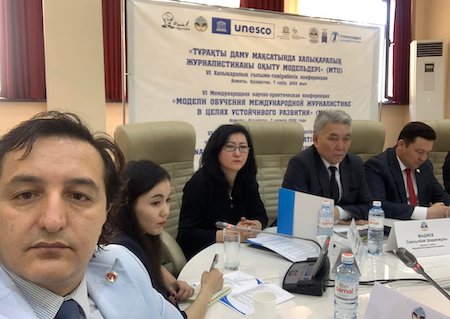
Vatan Oz, president of the British media holding company «Avrupa», and Yusuf Ozkan, a correspondent of the BBC television channel in the Netherlands, who were present at the conference, highlighted the most important tasks of modern media and shared their views on how to conduct fact-checking and counteract misinformation.
Scholars from other countries present at the conference emphasized the impact of fake information on current international stability. In the current geopolitical situation, the importance of providing reliable information, observing the qualifications and professional ethics of journalists, educational formats, and training tools for future professionals was not overlooked.
The meeting continued with masterclasses by representatives of international organizations and well-known media trainers.
Nazgul Shyngysova
Head of UNESCO Chair in Journalism and Communication
Al-Farabi Kazakh National University


 After Nesil Caliskan a by-election will be held in Jubilee ward in Enfield
After Nesil Caliskan a by-election will be held in Jubilee ward in Enfield Publishing the analysis, Labour’s Cllr Ergin Erbil said Everybody in Enfield deserves basic rights
Publishing the analysis, Labour’s Cllr Ergin Erbil said Everybody in Enfield deserves basic rights Gaza-Israel conflict Statement from Cllr Ergin Erbil, Leader of Enfield Council
Gaza-Israel conflict Statement from Cllr Ergin Erbil, Leader of Enfield Council Cllr Ergin Erbil was elected as the new Leader of Enfield Council
Cllr Ergin Erbil was elected as the new Leader of Enfield Council The European Union called on Turkey to uphold democratic values
The European Union called on Turkey to uphold democratic values Turkish citizens in London said Rights, Law, Justice
Turkish citizens in London said Rights, Law, Justice The Council of Turkish Cypriot Associations Geneva response letter
The Council of Turkish Cypriot Associations Geneva response letter Sustainable Development and ESG, Will This Become the Course for Turkic World
Sustainable Development and ESG, Will This Become the Course for Turkic World Saran Media And Euroleague Basketball Extend Media Rights Partnership for Four More Years
Saran Media And Euroleague Basketball Extend Media Rights Partnership for Four More Years Will Rangers be Jose Mourinho’s next victim?
Will Rangers be Jose Mourinho’s next victim? Jose Mourinho's Fenerbahce face Rangers on Thursday
Jose Mourinho's Fenerbahce face Rangers on Thursday Inzaghi stated that they felt the absence of our national player Hakan Çalhanoğlu
Inzaghi stated that they felt the absence of our national player Hakan Çalhanoğlu Barclays has become the biggest UK lender so far to cut mortgage rates
Barclays has become the biggest UK lender so far to cut mortgage rates THE SPRING STATEMENT EXPLAINED, UK ECONOMIC OUTLOOK AND GROWTH FORECASTS
THE SPRING STATEMENT EXPLAINED, UK ECONOMIC OUTLOOK AND GROWTH FORECASTS Launch of Made in Enfield gift shop to celebrate local artists and designers
Launch of Made in Enfield gift shop to celebrate local artists and designers Trial used smart Wi-Fi sensors for live building occupancy data to optimise
Trial used smart Wi-Fi sensors for live building occupancy data to optimise





